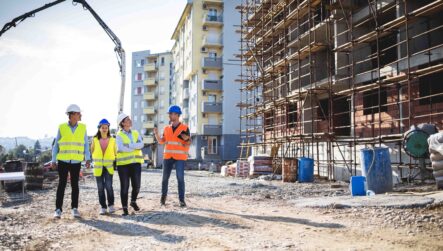Levelling Up project success is still possible by reviewing viability

Recent headlines have revealed the small amount of allocated Levelling Up Funding that has been spent to date. At a time when many local councils are struggling financially – and in some cases are issuing Section 114 notices – it may come as a surprise that projects with government funding have not yet made progress. However, there are different reasons, as well as solutions, explains our Director of National Delivery Karen Carter.

A report published by the Public Accounts Committee has revealed that despite £10.47bn in Levelling Up funding coming from central government, so far only £3.7bn has been given to local authorities. Given the need for allocated funding to be spent between 2020-21 and 2025-26, there has naturally been criticism of the situation. Moreover, as of September 2023, local authorities have only managed to spend £1.24bn.
In reference to the original plan, almost none of the 71 projects that were successful in the first round of funding are on track – despite being due to be complete in March.
While this may paint a fairly bleak picture, it has not been smooth sailing since the first round of successful bidders were announced in October 2021. Unusually high inflation has meant project budgets set by bidders when the government funding was applied for are no longer feasible. Add to this the fact that overall council budgets have become tighter, meaning the risk of starting projects without needing to find additional funding is simply too high.
Bridging the financial gap would be a solution, but for most this is not an option currently. Another, more realistic, option is to review project viability and adjust the scope where required. To do this, it’s key that the right people are on board.
From procurement professionals through to contractors and consultants, collaboratively engaging on issues and presenting the problems is the only way to find meaningful solutions. With construction projects, it’s the industry experts that can advise what market opportunities could be released to make a budget work hardest.
From our conversations with the public sector organisations that have secured Levelling Up funding, it’s not that the projects are completely unrealistic – but they need to be very carefully reassessed to ensure every stage from remediation through to delivery can be completed. Giving credit where its due, the Department for Levelling Up, Housing and Communities (DLUHC) has so far been flexible with projects – allowing many to start late and retain their funding – which is a big relief to local authorities. This flexibility stems from an understanding and awareness of the market changes and challenges that are impacting projects.
What can you do?
We encourage those overseeing projects to be proactive in seeking support and to discuss the challenges they are facing. At the Pagabo Group alone, we have a huge range of resources and connections that can strengthen the position of local authorities, giving them the confidence to kick on.
For example, we have multiple compliant procurement solutions covering project analysis support, cost modelling, project recovery, along with contractor and developer engagement options to fully analyse the best way forward for a project. But, if the findings from this analysis are not encouraging enough, there is the opportunity to use Loop to strategically demonstrate social value, stakeholder engagement and return on investment.
Ultimately, it’s not too late for Levelling Up funded projects and it’s definitely not time to panic. It’s time for open, honest and optimistic conversations about how to mitigate the impact of current challenges and create impactful, long-lasting change for communities.
Would you like to discuss your project? Get in touch today.
Discover our frameworks
































